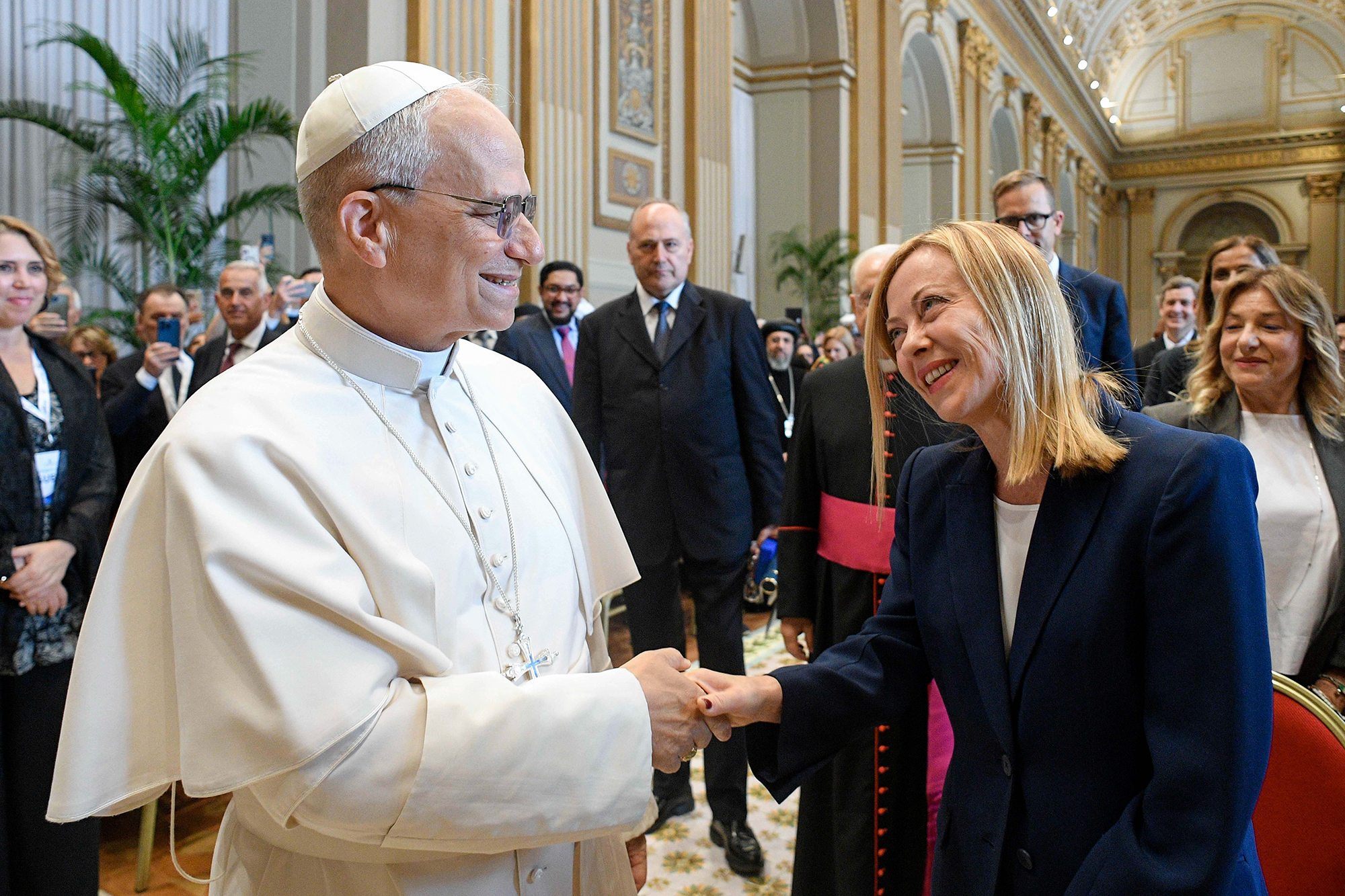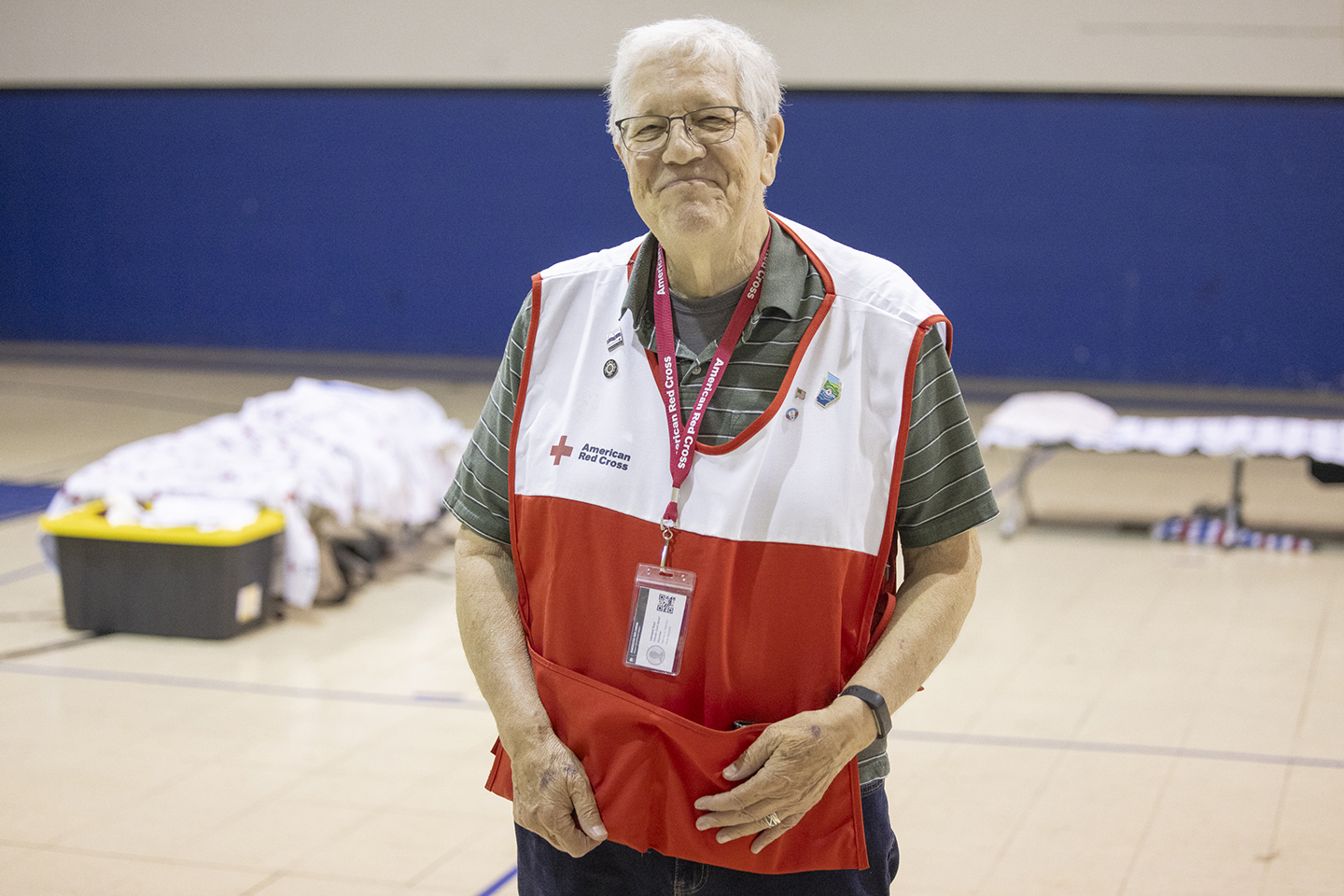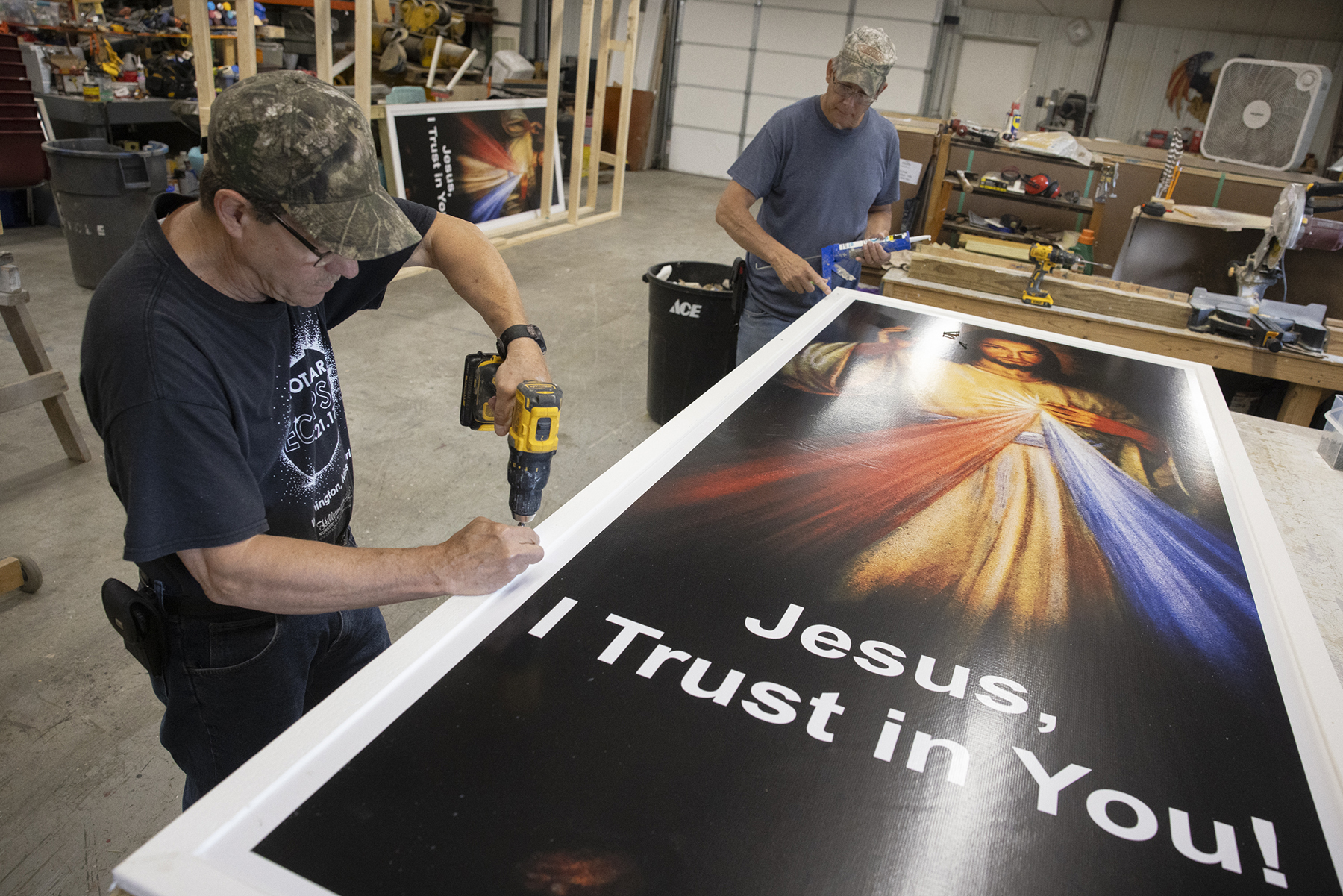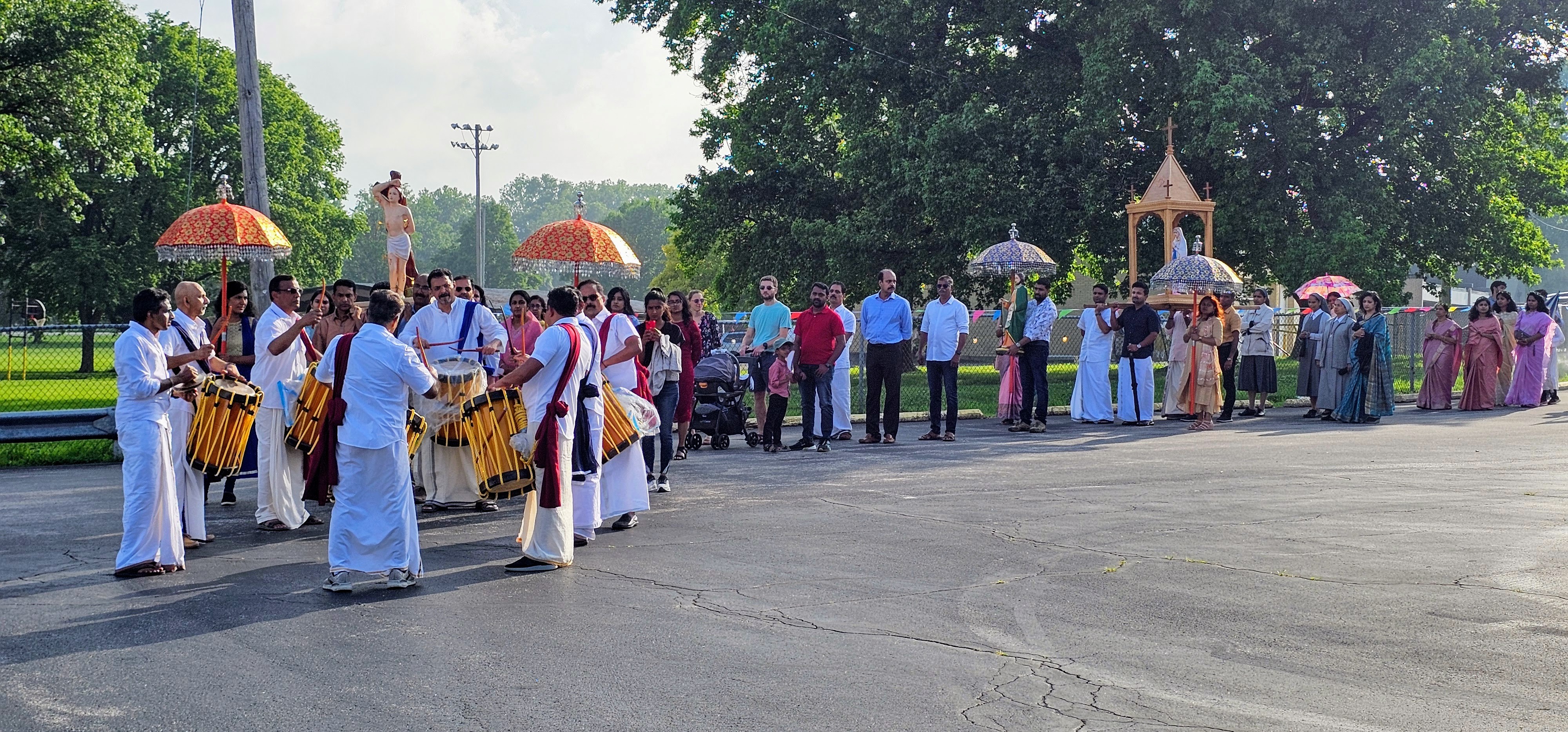St. Louis shepherds share their impressions of Pope Francis
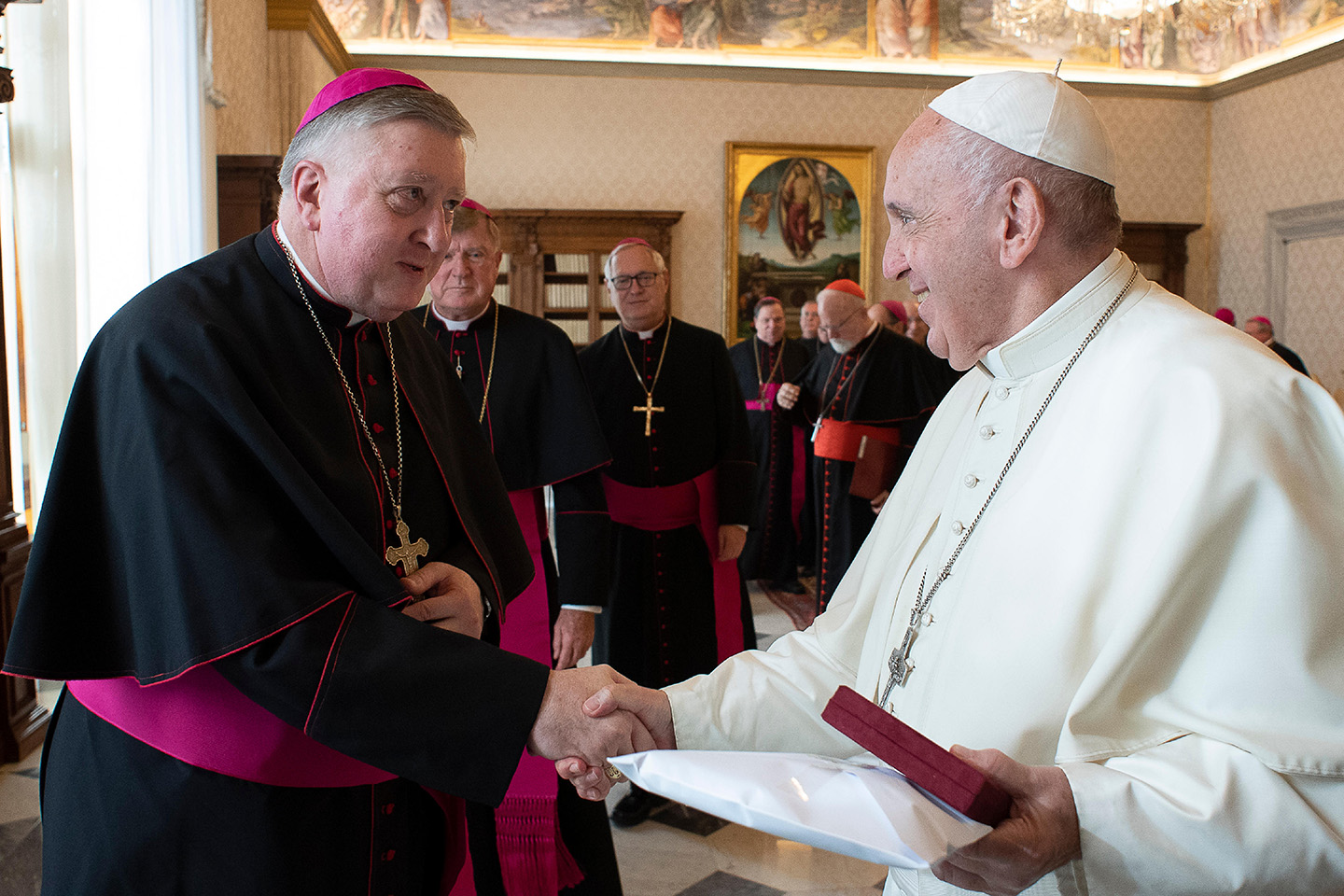
Throughout Pope Francis’ papacy, he left a lasting influence on the bishops who serve the Archdiocese of St. Louis.
Pope Francis appointed Archbishop Mitchell T. Rozanski twice — as bishop of the Diocese of Springfield, Massachusetts, in 2014, and archbishop of St. Louis in 2020. He was still an auxiliary bishop in his hometown of Baltimore when the pope was elected in 2013.
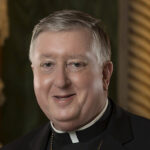
“As soon as Pope Francis appeared on the balcony, I knew that something was very different,” the archbishop recalled. Appearing in white robes, the Holy Father asked for prayers before offering his blessing to thousands of people assembled in St. Peter’s Square.
Choosing the name Francis, after St. Francis of Assisi, was “very telling” about his priorities — a special closeness with the poor, care for God’s creation and peace in the world, Archbishop Rozanski said.
Several months after his election, Pope Francis made his first visit outside of Rome to the Italian island of Lampedusa to pray for refugees and migrants lost at sea. The southernmost Italian territory off the coast of Sicily is known as a prime transit point for migrants from Africa, the Middle East and Asia wanting to enter Europe.
“It struck me that what Pope Francis did in taking that name and his concern for the poor, for the dispossessed, he was really following through on and giving us an example,” the archbishop said.
In 2019, Archbishop Rozanski met Pope Francis during his first and only ad limina visit, an obligation of bishops to meet with the pope and report on the state of their dioceses. He and other bishops from Region I went to Rome, where they attended an hour-and-a-half meeting with the Holy Father.
“After the meeting, the bishops remarked that it was like going to the house of your favorite uncle,” he said. “He was very welcoming and he was very practical, because he knew we would be there a while. And he pointed over to a door in the room, and he said, if anyone during our meeting needs the restroom, it’s over there.”
The pope told them he wanted to hear about their experiences in their dioceses. And perhaps more importantly, he told them “that if we had any criticisms for him to please feel free to voice those criticisms,” Archbishop Rozanski recalled. “I did not feel there was any sort of being rushed, and we all were able to speak what we wanted to say.”
The pope’s first apostolic exhortation, “Evangelii Gaudium” (Joy of the Gospel) also left an impression on Archbishop Rozanski, who has described it as the “Magna Carta for the Church in the 21st century.”
“The Holy Father called us to reach out in missionary spirit, and that this is good news to be shared,” he said. “There’s one line in which he writes that Christians should not look as though they’re always returning from a funeral, but we’re to be joyful in our faith and really share it as good news.”
Pope Francis appointed Bishop Mark S. Rivituso a bishop in 2017. Bishop Rivituso met the pope during a January 2020 ad limina visit.
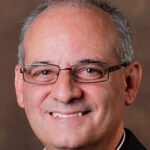
“He wanted us to know that he had time for us, and he expressed to us there that we’re all brothers as bishops,” he said. “He said, ‘Please ask me whatever you want to ask me, and I want to make sure we have a good conversation during this time.’”
Bishop Rivituso was seated just two seats down from Pope Francis during the visit. “As he spoke, you could see in his eyes the great compassion he has, his love for the Church,” he said.
Pope Francis’ episcopal motto “by having mercy, by choosing him” (translated from the Latin “miserando atque eligendo”) is taken from a passage read during the Liturgy of the Hours on the feast of St. Matthew, recounting Jesus’ calling of the tax collector.
We saw this attitude of humilty reflected in one of the earliest interviews Pope Francis gave during his papacy, Bishop Rivituso said. “Someone asked him, how would you describe yourself? And he said, ‘I am a sinner,’” he said. Throughout his pontificate, “you can see that he’s really firmly rooted and based in a very humble way in His love for the Lord, and it shows by his service to the Church and his service to the world.”
Pope Francis’ description of the Church as a field hospital has also influenced Bishop Rivituso in his episcopal ministry, he said. “We can’t forget the poor and vulnerable in our society, and we should always be mindful of reaching out to the marginalized to show that the Church is one with them in solidarity,” he said. “And I feel like Pope Francis models this, but also calls us to model it as well, as bishops.”
He also was moved by Pope Francis’ most recent encyclical on the Sacred Heart of Jesus, “Dilexit nos: On the Human and Divine Love of the Heart of Jesus.”
“If we conform our heart to the heart of Jesus, then we’ll have the right focus and intentions and desires in our life, because it will be that of Jesus,” Bishop Rivituo said. “And if we’re living that, then we’re giving hope and encouragement to our world.”
Retired Archbishop Emeritus Robert J. Carlson met Pope Francis during an ad limina visit in 2020. Even though Pope Francis had already received the report on the state of the archdiocese, Archbishop Carlson said he was still a little surprised when the pope shared some specific details about St. Louis during their meeting.
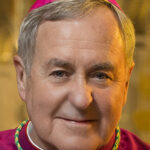
“I came up to greet him, and he said, ‘I want to thank you for all that you’ve done with the poor in St. Louis, and especially when you got yourself involved with some of the tension and difficulty between the white and Black community,’” a reference to Ferguson and the local Church’s efforts to address racial disparities affecting the St. Louis region.
Archbishop Carlson said he has been inspired by the Holy Father’s words to young people. In a message on the fifth anniversary of his apostolic exhortation “Christus Vivit,” he told young people that they are the “living hope of a Church on the move” and they have a mission “to bear witness before everyone to the joy born of friendship with Christ.”
Pope Francis also called us to listen to God’s will and follow Christ’s example, Archbishop Carlson said. In addressing priests, the Holy Father said that like St. John Vianney, the Cure of Ars, “you serve in the trenches, bearing the burden of the day and the heat, confronting an endless variety of situations in your effort to care for and accompany God’s people.”




